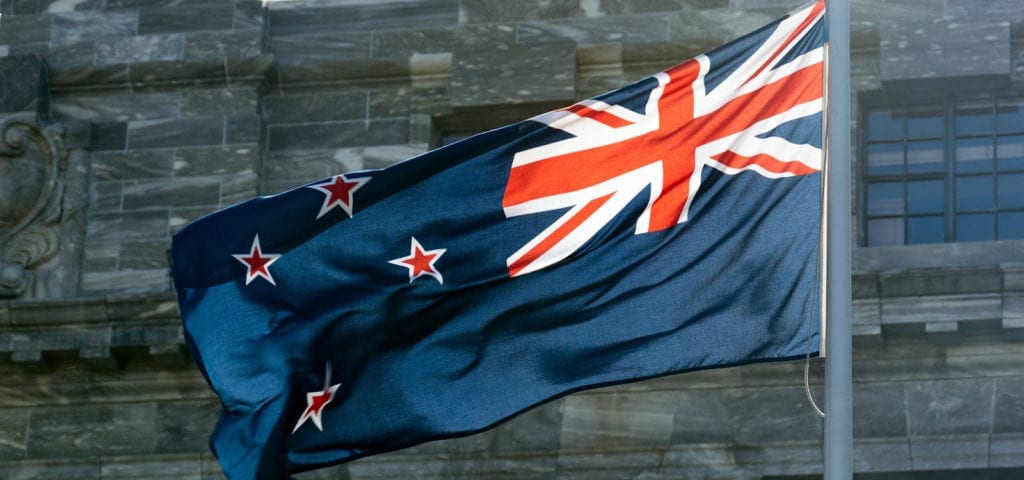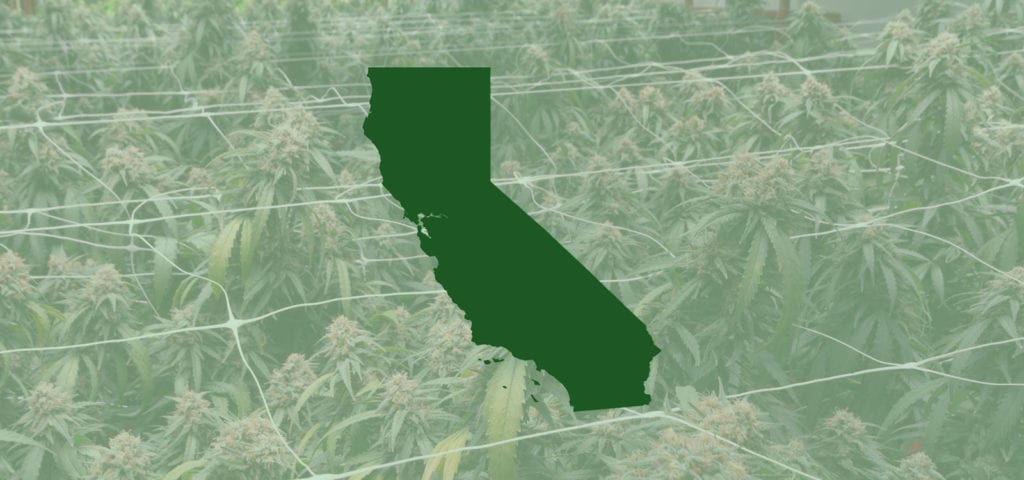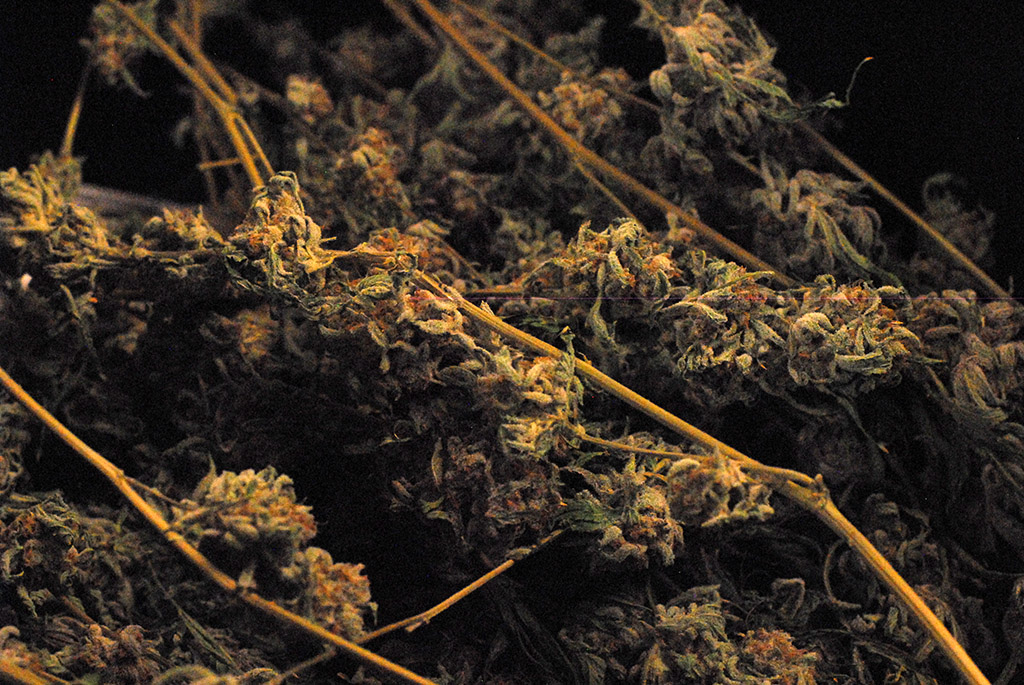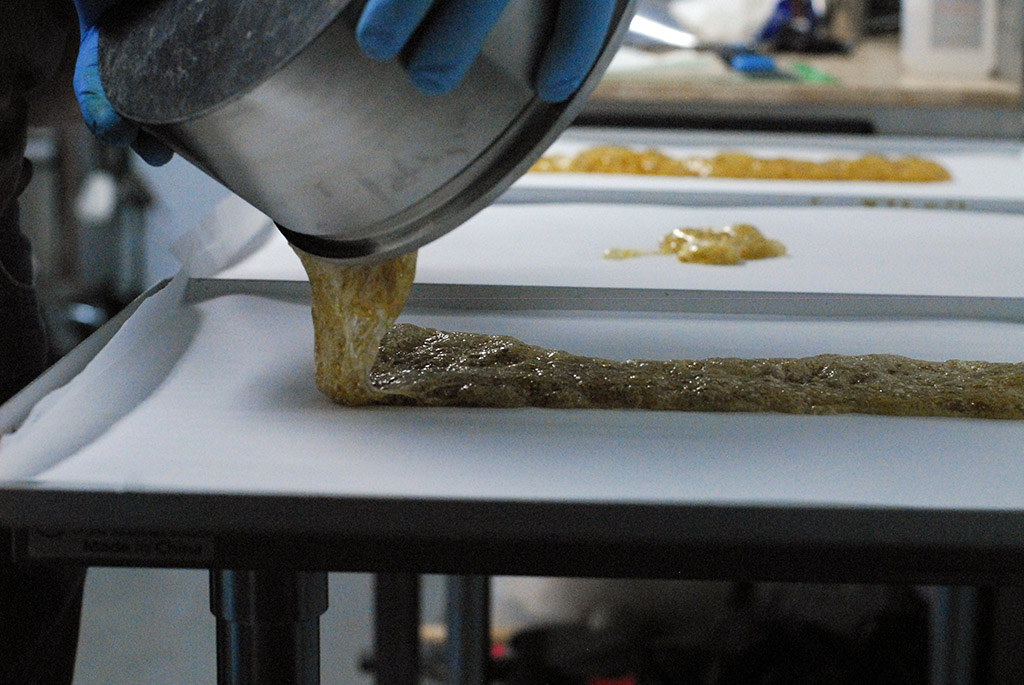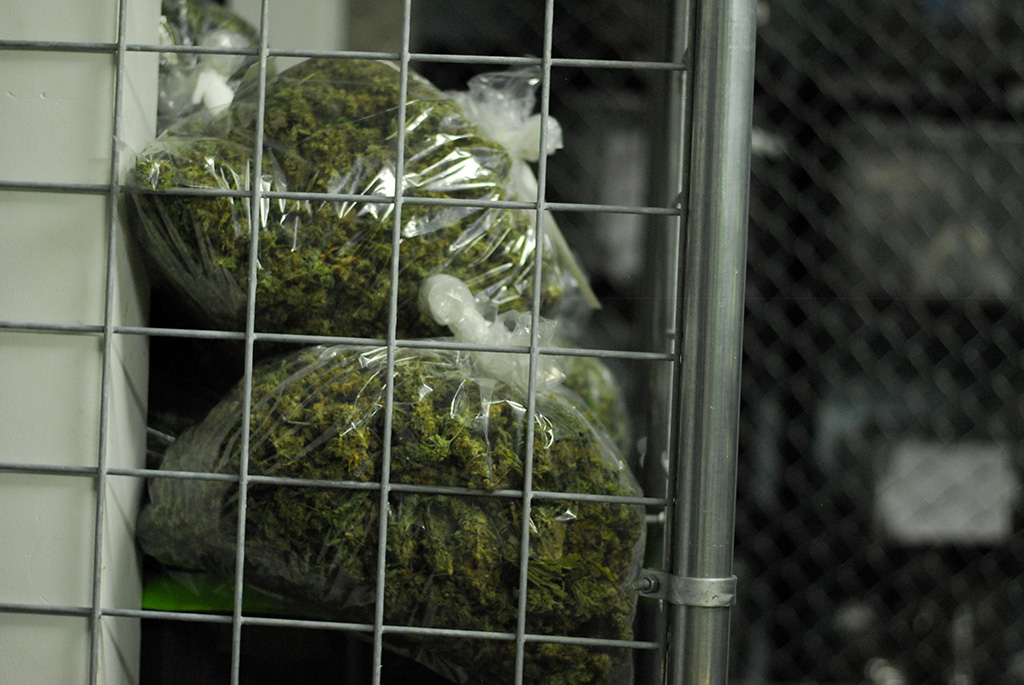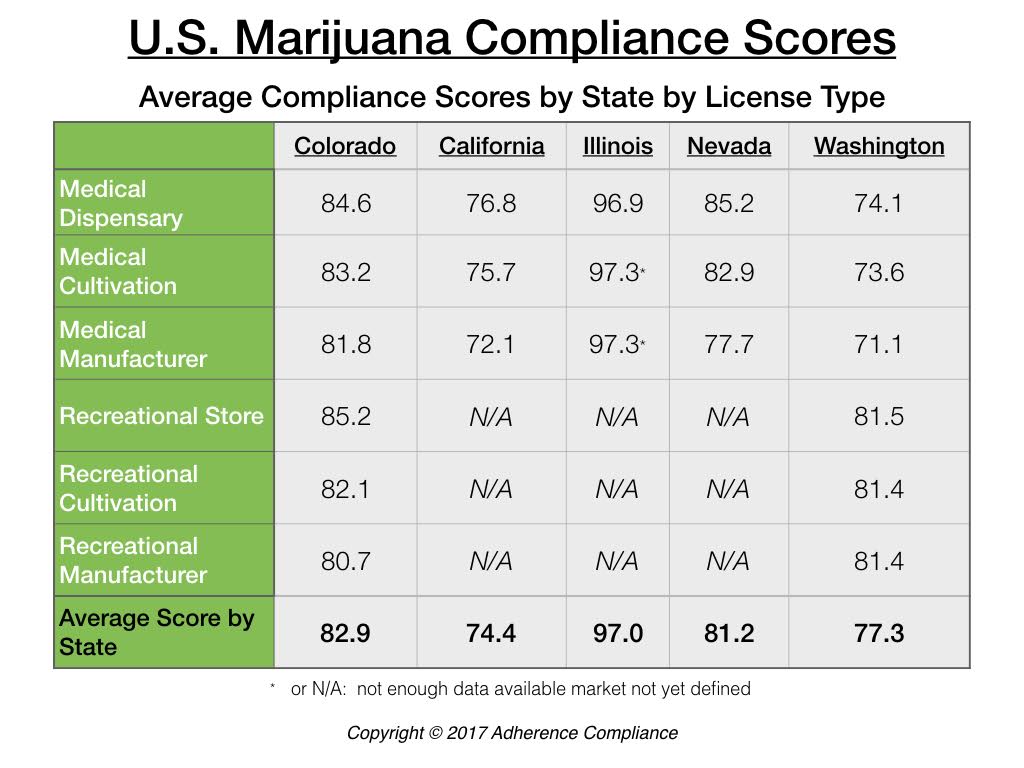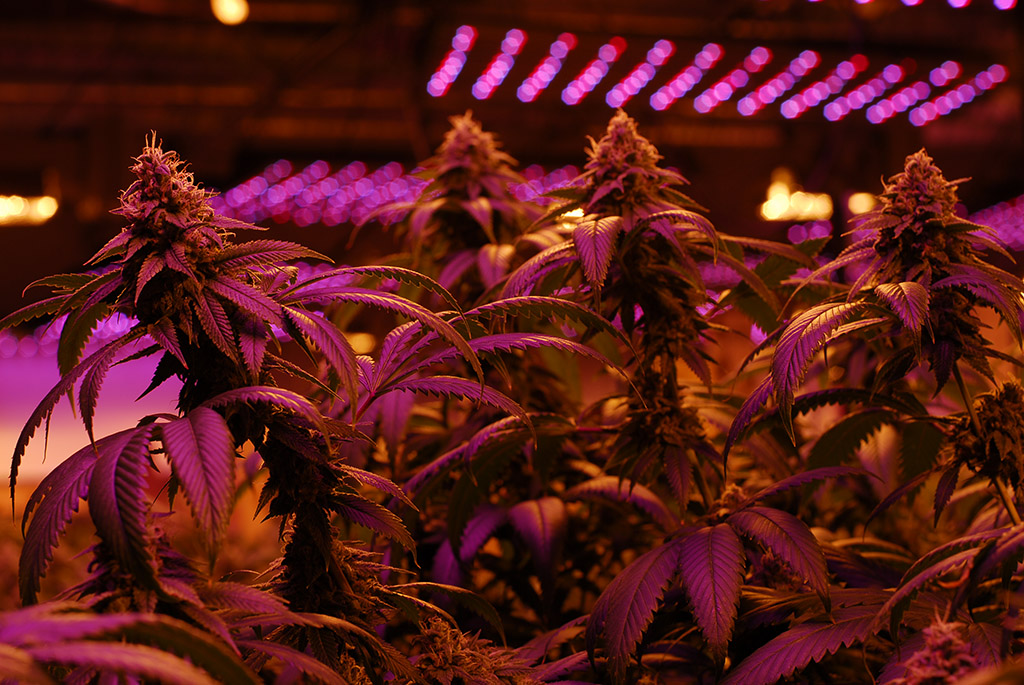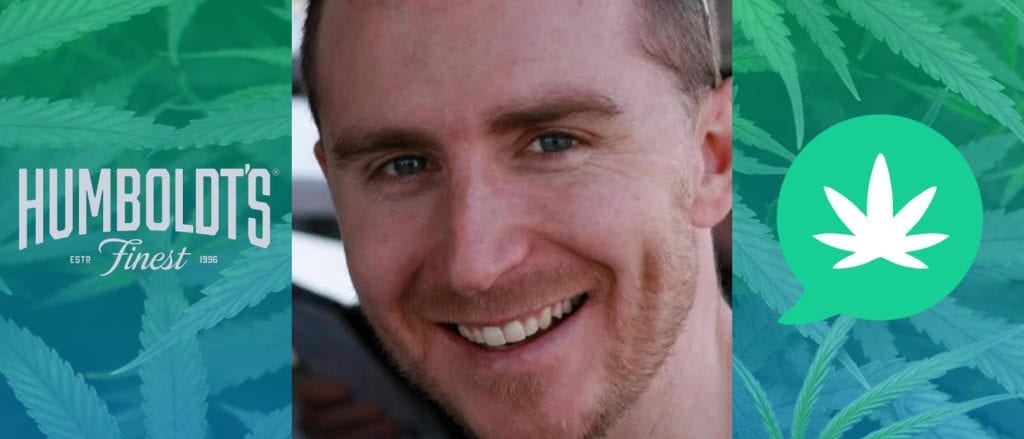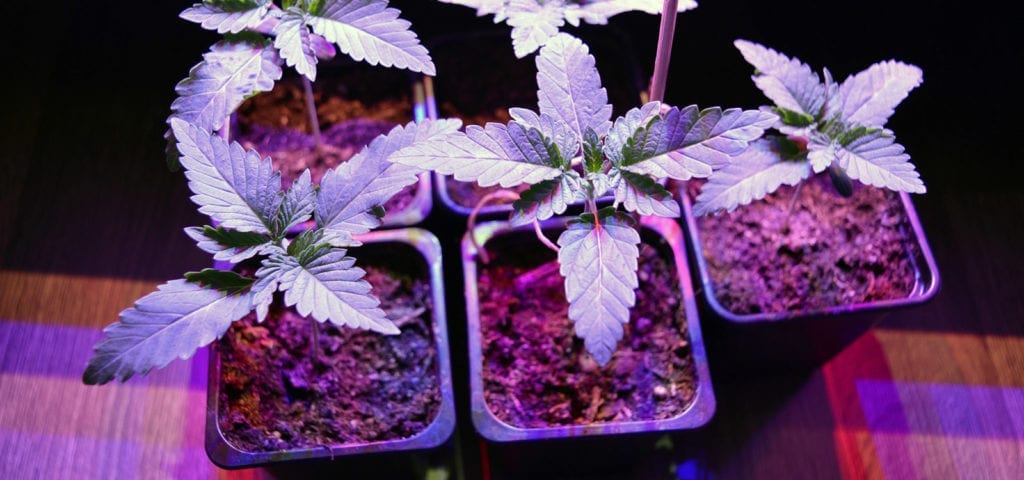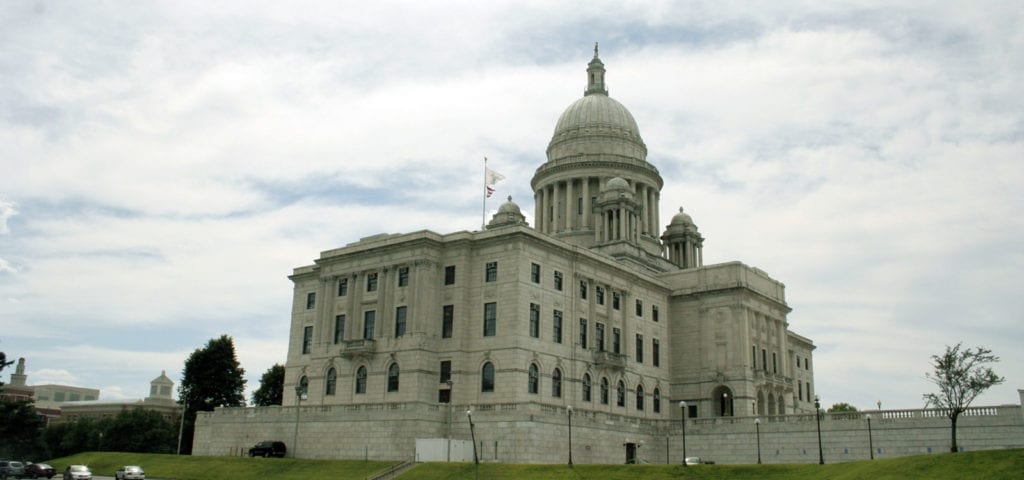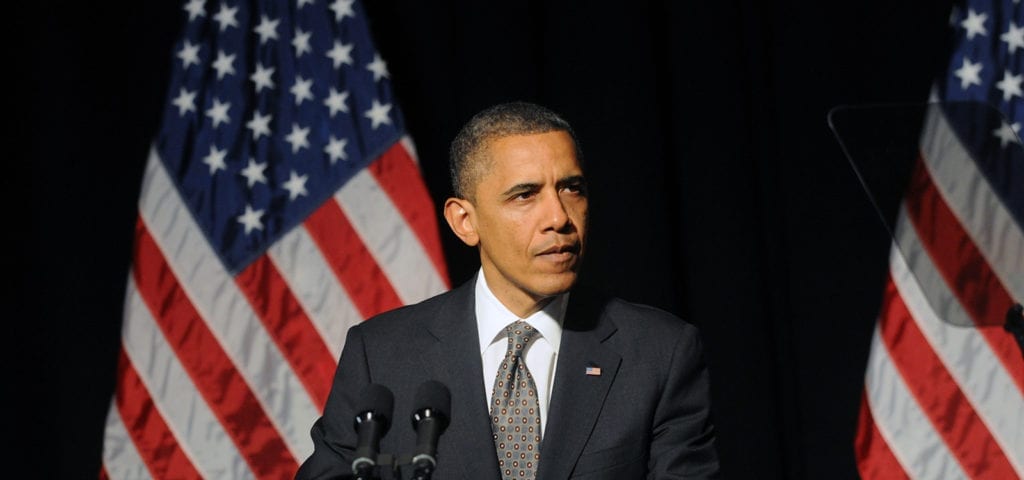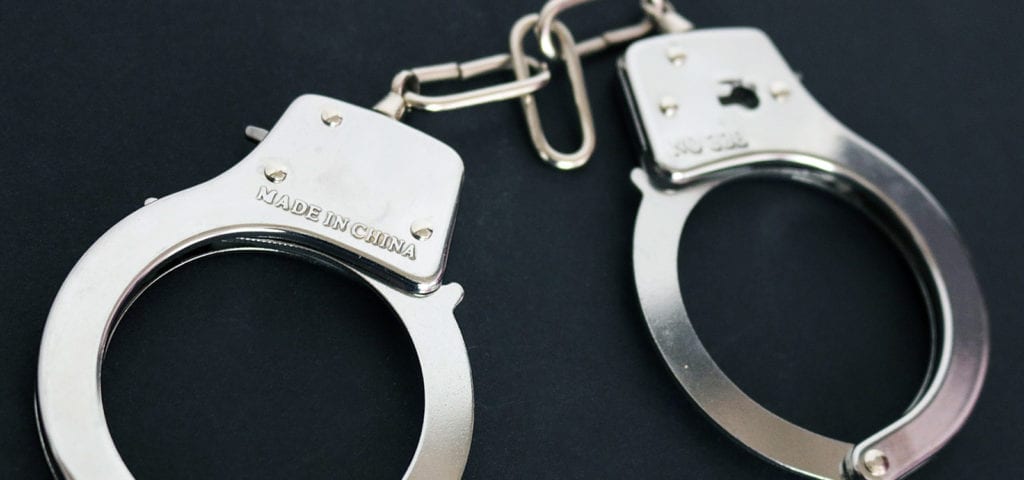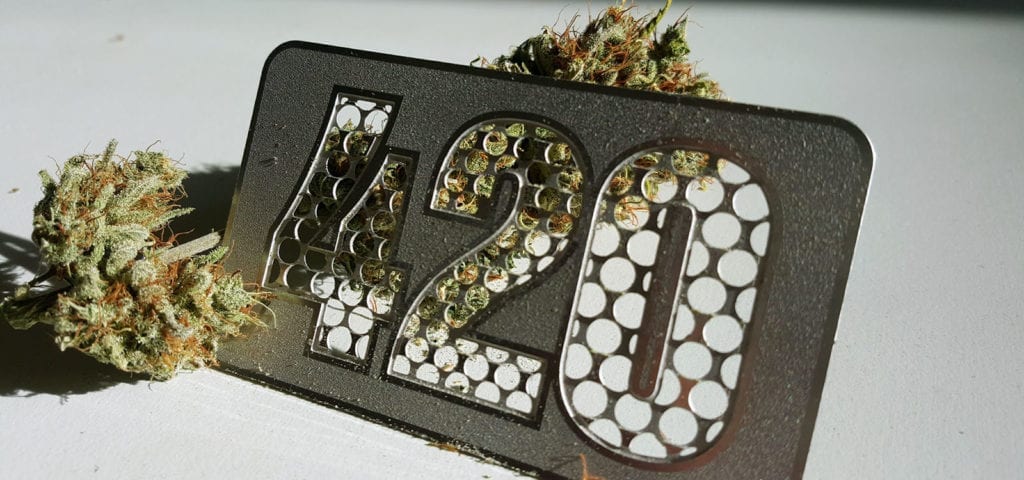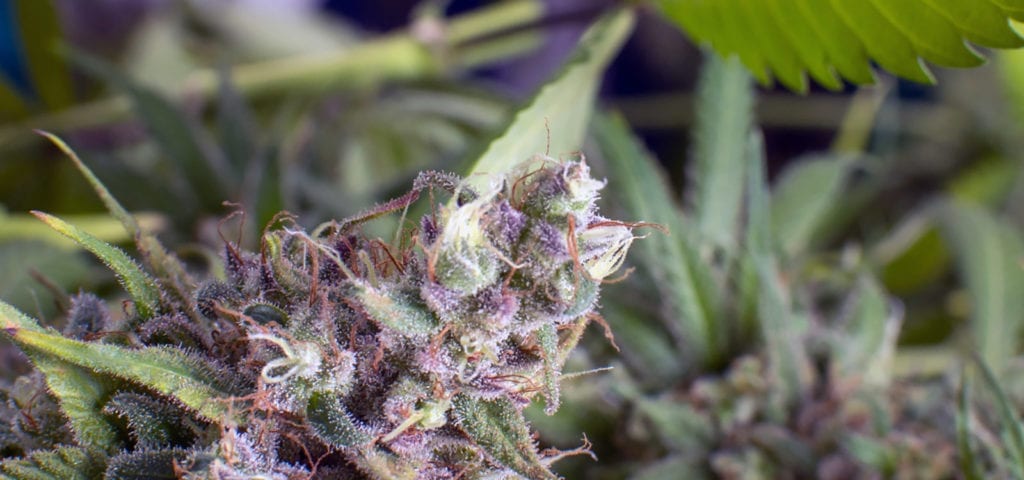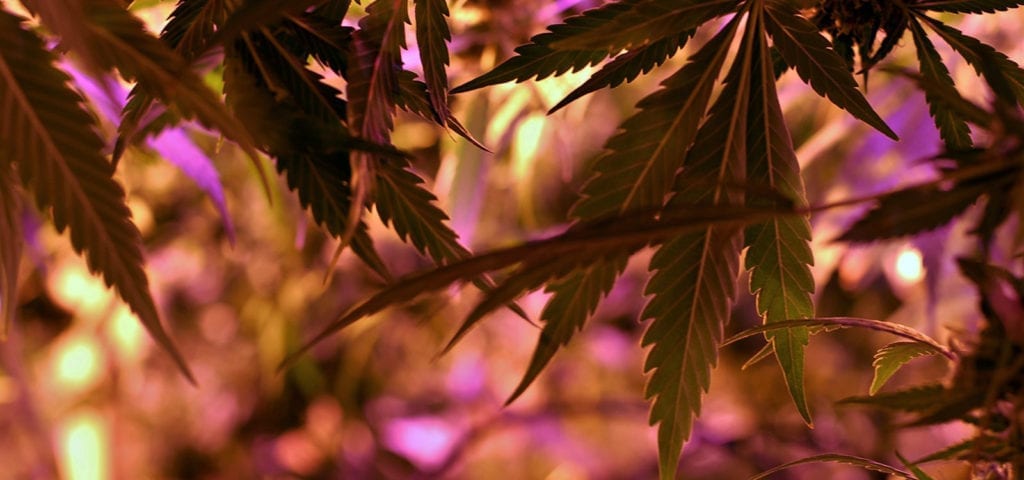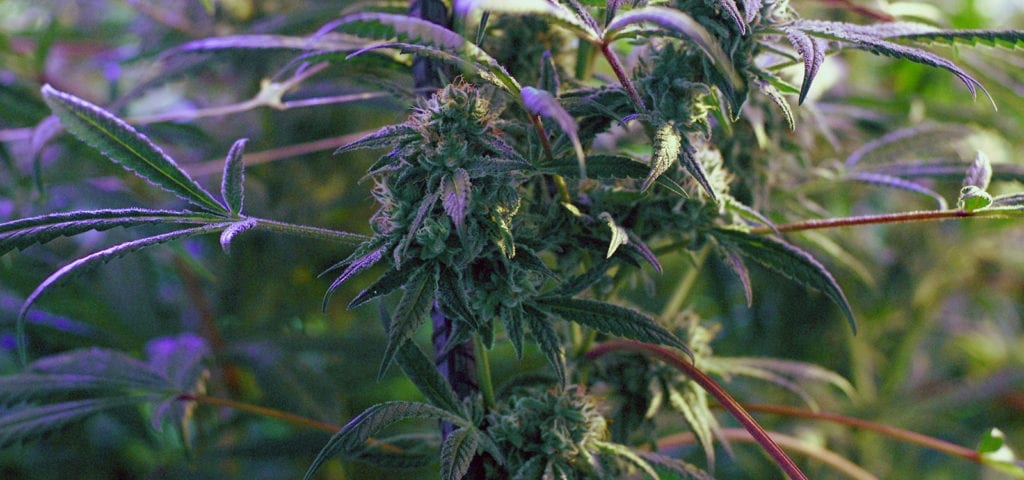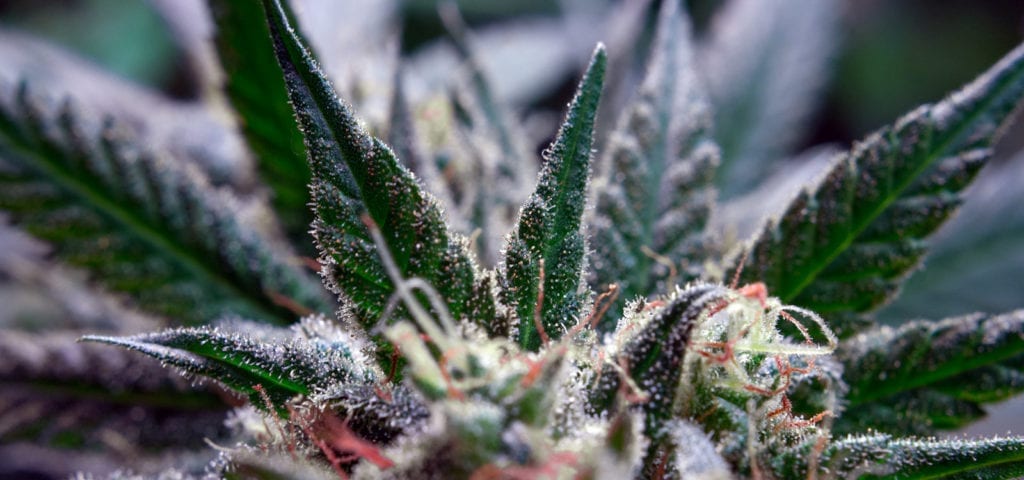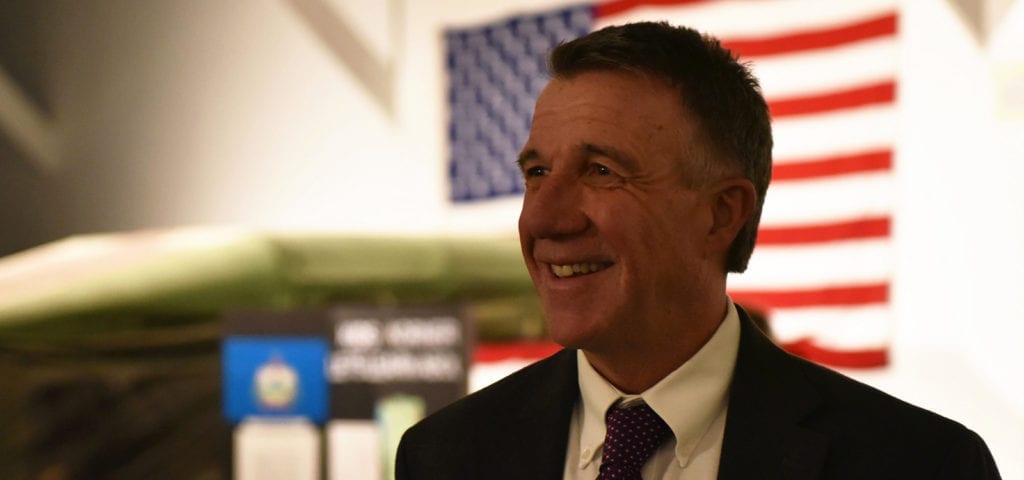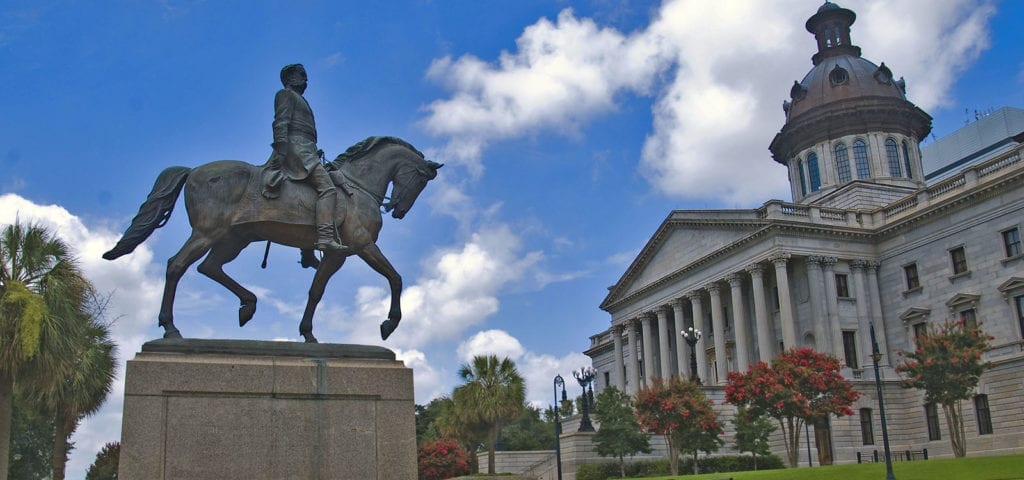Joey Shepp is the CEO of Humboldt’s Finest, a company of generational cannabis farmers based out of California’s Humboldt County that provides ecologically friendly sungrown cannabis products.
In this episode of Spark the Conversation, Joey joins podcast host and cannabis advocate Bianca Green for a conversation about the company’s approach to branding and their efforts to maintain a socially and ecologically responsible presence in an increasingly corporate cannabis industry. The two also discuss the future of California (and specifically Humboldt County) now that legalization is a reality in The Golden State, the recent launch of Humboldt’s Finest products onto the California marketplace, and much, much more!
Listen to the podcast:
Read the transcript:
Bianca Green: Welcome to the Spark the Conversation podcast in partnership with Ganjapreneur.com. Today, as a part of our Emerald Cup series, we’re speaking with Joey Shepp, the CEO of Humboldt’s Finest. This is a really exciting interview for me because I’ve gotten to work with Joey for the last nine months helping be the creative director of the Humboldt’s Finest brand and bringing it to light for their launch. I know that they’re really excited because this is the first time that consumers are being able to see their product in packaging finally.
It’s a group of three farmers that have decided to come out of the cannabis closet and build a brand together as a collective. It’s been a really wonderful journey. We used really great people to help create the brand vision, did a series of videos, twelve video that are online at Humboldtsfinestfarms.com. This was just a really great journey to be able to go up to Humboldt, for myself included, and be able to spend time up there and help the Humboldt name come to life.
As we all know, Humboldt is kind of a globally recognized place that grows some of the finest sungrown cannabis. To be able to be a part of that and work with Joey over the last nine months has been a really great gift. I’m really excited to see where the brand goes and also speak to him today about some of the vision of the brand.
Hi, this is Bianca Green. I’m live at the Emerald Cup with the CEO of Humboldt’s Finest Farms. You guys are here launching, officially, the product at the Emerald Cup for the first time. Thank you so much for coming and being with us today with Sparking the Conversation with our awesome media partners, Ganjapreneur.com.
Have you been having a good time at the Emerald Cup so far? What’s the tone been a little bit for you and the company?
Joey Shepp: It’s just huge. Everything’s exploding right now. I think we’re just on the cusp of something really big. Legalization is happening. People are showing up. Got a really diverse crowd. Just all walks of life are here. You’ve got a lot of entrepreneurs, a lot of segments of the business represented, and I feel like the culture’s kind of elevated compared to what it’s been in the past. Really happy to see everybody here.
Bianca Green: Yeah. A little bit to tell the audience our backstory is that I helped creative direct the brand and had the opportunity to kind of help you guys articulate your brand message. You were one of the first Humboldt brands that really took that step to come out with the whole brand message and identify yourselves as farmers. Tell me about what that process was like coming out of the closet as a Humboldt farmer and coming into the new light as we see 64 happening and legalization not on the rise anymore, like actually here.
Joey Shepp: Yeah, sure. It’s been challenging in some ways because you’ve got this long history of prohibition where farmers have been really in hiding for the most part, and you don’t talk about these things, certainly not publicly and put yourself out there. It’s been a trust-building exercise for the farmers to really come forward. I think the ability for us to get permits at the county level, for legalization happening at the state level, all these are really reassuring.
You got a lot of pent-up energy with the farmers that have been wanting to share their works, what they’ve been growing, what they’ve been working on, all their expertise and stuff. I think there’s a lot of excitement with the farmers but sort of carefully taking it step-by-step. I think all the farmers know that they’ve seen the way the beer industry has moved and other ones where corporates have come in. That’s been the talk for a long time; as soon as it goes legal, corporates are coming in. The common story is we need to get brands. We need to all have brands so that we represent, so that we don’t get lost. It seemed like a natural fit.
Growing up in Humboldt County, I always knew that Humboldt was a brand. I’d go anywhere, I’d go over to Europe and, “Where you from?” I’d say, “Oh, California.” “Where specifically?” “Humboldt County.” And then they’d giggle. Yeah. Yeah. They’d know what’s up. You didn’t even have to say it. There’s this worldwide brand reputation that I knew that if we didn’t really capture that that it would get taken away from us by some corporate interest. There’s really just a big need right now to represent the Humboldt brand authentically. Themes of sustainability, environmental protection, multi-generational farmers; these were all things that we really wanted to infuse with the brands so that as Humboldt spread to the world, people are getting the right message of what it’s really about.
Bianca Green: Yeah. It’s so important to … Some of the messaging that you created is commercials, which is really a historical move. Not only are you taking on a brand in Humboldt but you’re putting your face to it as a brand, and you’re also creating this historical opportunity for people to become destigmatized to what they think farmers in Humboldt County are like. What do you think that the drawbacks and the benefits of coming out and telling the story as a farmer can be?
Joey Shepp: Yeah. Well, I think you mentioned one of the big ones is destigmatizing it, really just showing that these farmers have families, they’re dedicated to their craft, they love it, they’ve been doing it for multiple generations and it’s really a big part of their lives, and they aren’t as fringe as you think. These people are doing a lot of the things that the rest of the world does; have families, fulfilling work, relationships, meaningful life. Yeah. I think that’s really what it’s been about for the farmers.
Bianca Green: When you look at some of the other competitors that are using the Humboldt name out there, what solidifies you as being different than some of the others? There’s a brand that is actually run by people in Chicago called Humboldt. There’s a few different other companies. How do you see yourself as being different and not better but in a different position than some of these other potential competitors?
Joey Shepp: Yeah. That’s something I’ve been thinking about a lot at this event. I look around and there’s quite a few vendors using the Humboldt name at all different levels of consciousness. You got even people walking around with signs that say “Humboldt Wholesale” right on their backpacks. It’s like, “Whoa, that’s the bottom of the rung.” I think the big difference for me is that we’re really looking beyond just the customer base that’s here at this event. This is our family, our friends. We love this community and everything, but honestly our customer is really a much larger audience than this. It’s really the people who maybe smoked a joint in college, then because it’s been illegal they stayed away from it, and now that recreational’s coming back they’re going to give it another try. That’s a statewide, that’s a nationwide, and potentially someday even a globalwide audience.
We’re really looking to not just appeal to the Northern California culture, which is amazing and we love it, but actually appeal to a much broader culture, one that not just cares about the potency of the ganja but also the story behind it. They’re used to buying brands at Whole Foods and things like this that have rich background stories. The modern consumer, especially the one willing to pay a premium, it isn’t just about the THC content in the product. It goes much beyond that. I think they could get high THC in a ton of different ways, so they’re going to pick one that has a story, something that’s a bit more elevated, a package that they can trust for consistency, for purity, for safety, all of those factors. We’re really trying to deliver that next-generation product that will be appealing to this huge influx of people into this market.
Bianca Green: That’s a super important thing right now for the new consumer to understand is that there is differences in the product. It’s very similar to a Costco brand or an organic Whole Foods brand. The one thing that I really appreciate about Humboldt’s Finest is you don’t outprice yourself. You don’t overprice yourself but you offer such a high quality product. How do you keep consistency in that product? From a sustainable sungrown perspective, what are some of the accoutrement that make you guys the craft cannabis artisan product?
Joey Shepp: Sure. Sure. Right now, the industry is still fairly unregulated. There’s not many certifications or standards that you can actually meet, let alone that you have to. We’re really taking a voluntary approach to go above and beyond and incorporate standards into our business. One is that we’re PFC certified, Patient Focused Certification.
Bianca Green: Through Americans for Safe Access, which is an amazing certification program. Any patient out there will know that they have very high standards in the product if it’s certified. Rigorous.
Joey Shepp: Their standards include safety, quality, potency, worker environment; all those kinds of factors are integrated in a really holistic certification. Three of our farms have already met that standard, and we have a whole line of farms who are working to also meet that standard. That’s one of the standards. Sungrown, which doesn’t have an official definition or certification per say, but we define it as growing with the sun the way nature intended. We’re really strongly behind the sungrown movement, and we really want to show that you can have premium cannabis with sungrown also.
Bianca Green: Also, I actually prefer sungrown cannabis. A lot of people really don’t even know that there is a difference. I appreciate the organic consistency, in a sense, of the sungrown plant. What are some of the biggest differences between indoor and outdoor growing just because I don’t think our … A lot of people know but certain people in our audience have no idea.
Joey Shepp: Absolutely. Well, I think some historical context is important here because why indoor growing really started was because prohibition. People needed to hide it. That became the state of the art because that was the only way you could grow it for the most part. As prohibition started to roll back and lift, people started to come back out and grow it outdoors, which was obviously the way that it was done for many, many years before that. Now, you’re seeing a resurgence and a new artistry around the sungrown. Yeah.
Many benefits. Environmental benefits. It doesn’t require fossil fuels, obviously. Over 8% of California’s energy right now is used by indoor grow operations. If this movement is going to scale to supply product to all the millions of people coming into it, sungrown is the only way be scalable. Just from a shear economic perspective, you look at other commodity crops and everything; corn, soy, nothing’s grown with lights, just not feasible. That’s just the bottom line that sungrown will become the norm because it’s just much more feasible to grow to scale.
Some more interesting things are, there’s a study that was done in Washington with over 2,000 samples of cannabis showing that outdoor has a fuller bouquet of terpene profile. This means that better flavors perhaps, more medicinal benefits, the entourage effect of all the terpenes working together. I think we’re really at the start of really seeing sungrown become an artisan element. I think indoor has been perfected, and there’s obviously some amazing product coming out of there, even some organic indoor that I think is still great. Sungrown is really starting to hit its momentum right now. I think the farmers who have been doing it for the past ten years since they’re able to come out of the darkness and into the light; they’re starting to really get their craft down. I think that with a little education, the consumer will see that sungrown, grown the way nature intended, is really an amazing product and can deliver flavor, potency, and environmental benefits.
Bianca Green: What is it about Humboldt’s region that makes it … I don’t want to say, again, better but unique, I would say?
Joey Shepp: Absolutely. Well, I think that at its root, Humboldt has a perfect climate for growing cannabis, basically hot days, cool nights. That just happens to be perfect for ripening the flowers and all these other benefits. Another benefit that people might not see right away is the multi-generational knowledge of how to grow. When my parents moved up to the land, it was some of the first movement of farmers coming into what was logged land. It was brand new, started there, how do we do this, and it became a craft after a while. Now we have multi-generational farmers who have all that knowledge.
You also just have a huge community that can share knowledge with one another. You also have a supply chain that’s built around Humboldt; soil companies, nutrients, trading of clones and nurseries, and all these things really created a mecca for growers. As it becomes legal, we’re going to see lots of other areas become good at growing cannabis too. I think Humboldt will always have the reputation, definitely has a head start with the culture, and I think the climate will always be good there. I think that there’s always room for craft cannabis and Humboldt will be one of the main suppliers of that.
Bianca Green: One of the things that I love about Humboldt’s Finest, the founders, yourself, and Kristen; you guys have had, through Kristen Nevedal who started the Emerald Grower’s Association … Sorry. It started as Humboldt Grower’s Association, which turned into Emerald Grower’s Association, which is now California Grower’s Association was essentially founded by Kristen who is one of the wives of the founders. You’ve had advocacy in your business model for a long time. You guys came in and sponsored the Spark the Conversation bus tour about personal freedom and that was a huge thing. Tell me about some of the advocacy things that you have built into the business model for the vision of the future of Humboldt’s Finest.
Joey Shepp: Sure. Absolutely. At the beginning, sustainability is one of our core elements. Not only do we want to communicate to the consumer that we’re sustainable so they can feel good, we also want to help other farmers be more sustainable. That’s sungrown, new term that we’re putting out there is raingrown so actually capturing rainwater rather than diverting creeks, better for the salmon, better for the rivers. Sustainability’s a really core element.
One of the campaigns that we’re looking at, because we really want to help Humboldt County in specific and we want our products to connect to that, so we’re working with a nonprofit right now to actually have a portion of our product sales go into preserving land in Humboldt. Basically, every eighth that you would buy, every pre-rolled joint would preserve a certain amount of square footage of acreage in Humboldt County so that it won’t be logged in the future.
We want a real connection with our customers where they buy one of our products and they feel connected to Humboldt County. Maybe they’ve come to Humboldt County as a tourist and seen the beautiful Redwood trees, the Lost Coast, things like that and they want to help preserve that or maybe they want to connect to it. Maybe they feel like they’re a back-to-lander, even if they live in the city, in their own way they want to support that culture and that movement and things like that. Those are some of the activist elements that I think we’re really big about; sustainability and the environment and protecting Humboldt County.
Bianca Green: It’s such a huge element. You know how passionate I am about advocacy and being socially responsible to some degree, and it’s so good to see businesses participating in helping to be a part of not only their local community but also a global conversation. We built out assets for your brand vision, and I personally still have yet to see people creating commercials, cannabis commercials. We did this awesome series that is at Humboldtsfinestfarms.com right now that you can see that articulates Humboldt, a bit of the brand vision, and some of the sungrown conversation. What made you guys want to actually create commercials? Is it that you wanted the opportunity to be the first or be a really large voice for Humboldt County? Obviously, I think it was a very smart business move because it’s a historic opportunity. We are in the land in the moment and the Zeitgeist right now is that we are making history. Tell me a little bit about that process and for you guys and the founders what it was like to put your faces out there.
Joey Shepp: Absolutely. Video’s just a major paradigm as far as the way people communicate and digest content, so video’s just really got to be an important marketing strategy for anybody. For us, video it’s very intimate and we wanted to break down those barriers and show people this is who your farmers are, this is what the culture is, we can be a little funny, we can be dramatic, we can have all these different angles that bring in the customer into an experience where they might not be able to go to Humboldt but they can experience it through video. That ability to connect with the farmer, connect with the land of Humboldt, connect with the culture, have a few laughs along the way I think it’s just a really great way to connect to a lot of people virtually and bring them into the brand. I think video is just a great asset for that.
Bianca Green: Some of the videos I loved. The farm to table, obviously, is so awesome because a lot of people, including my family in Indiana, were able to take a look at that and say, “Those are the farmers that you’re working with?” It really destigmatizes what people think the Humboldt cannabis farmer is. You got a good-looking group. You got a good-looking group of farmers.
Joey Shepp: These are all healthy, functional people, many with families, and it’s a way of living for people. It maybe started as counterculture but it’s really quickly moving out of the counterculture into the mainstream. Our farmers want to connect with that just like you’d buy your organic kale and you’d want to know how far away was it grown and what was the farm, maybe might do a farm tour someday, those kinds of things. We see a lot of parallels with the natural food movement and the way that people want to connect with their source. We’re trying to deliver that same experience of origin, source, and especially in Humboldt County.
Bianca Green: Well, tell me a little bit about what is in store for Humboldt’s Finest for 2017. I know that you’re launching here, and it was a bit of a soft launch. You guys have been coming to market through advocacy through your video series. What’s next in 2017? What do we have to look forward to?
Joey Shepp: Absolutely. We just launched our new product line, which includes a compostable boxed eighth, a six pack of joints, and a single one gram pre-roll. We’ve got all the flower represented. Really want to start there with the authentic flower, see what sungrown can do. The next wave, as a lot of people right now, is moving into extraction. We’re working hard right now on setting up an extraction facility that can be used by Humboldt farmers. We’re going to be releasing more of the videos that we’ve been working on all this year, so we have a roll out of those. We’ve got a few new products that are a little bit secret right now. We’ll be able to talk about them soon. Really product innovation, packaging innovation, bringing more farmers on board through certification, that’s really where we’re at right now. We’ve started making our mark, but I think really 2017 is really going to be our big launch year.
Bianca Green: Great. When do you guys hit stores?
Joey Shepp: January, February. Our first batch is going out later this month. We’re going to test it in a few stores, and then you should find it in over 200 dispensaries within a couple of months.
Bianca Green: Great. Is there anywhere that people can know to go to get it or should they go to Humboldt’s Finest Farm …
Joey Shepp: Yeah, come to our website. We have a where to buy page at Humboldtsfinestfarms.com. That’ll have an ongoing real time list of the dispensaries that have our products.
Bianca Green: Great. Is there anything you want to tell our audience of entrepreneurs about getting into the cannabis industry and what some of the challenges and or the victories might have been in this last year with this brand and coming to market?
Joey Shepp: Well, like any new industry, there’s just tons of opportunity for innovation. Big areas like chemistry and genetics, so the whole sciences. If you have a background in chemistry or biology or anything like that, there’s a huge need for lab testing, verification, all that kind of stuff. In the technology and hardware space; vaporizers, new extraction methods, all of those are going to take a lot of engineering, a lot of technology. If you have an engineering background or product design, technology there’s huge realms there. If you’re into software, there’s going to be a huge amount of software needed to run all this regulatory stuff, be able to … Everything from tracking your farm to tracking your sales, all the way along there. I think software’s a big growth area. Marketing and branding. If you have a marketing and branding agency, being able to really focus in on cannabis in specific and know the nuance elements. Legal, just huge realm for law to come forward. All these little farms need help with that. Even the farms themselves need help, so people who want to go and work on farms can come up to Humboldt and connect with a farmer. Really there’s just a ton of areas that anybody with some innovation willing to get in on the ground floor of a new industry could make a really good life for themselves.
Bianca Green: Awesome. Well, thank you so much, Joey Shepp, CEO of Humboldt’s Finest Farms. Tell our audience again where they can find you.
Joey Shepp: Absolutely. At Humboldtsfinestfarms.com.
Bianca Green: And social media is Humboldt’s Finest on Instagram.
Joey Shepp: Yep, on Instagram.
Bianca Green: That’s the pinnacle. It leads everybody everywhere anyway.
Joey Shepp: Yeah. It’s the visual. People want to see it.
Bianca Green: Yeah. Well, thanks, Joey for coming and making the time at the Emerald Cup here for the Spark the Conversation podcast sponsored by our awesome partners at Ganjapreneur.com.
Joey Shepp: Thanks, Bianca.
Bianca Green: Spark the Conversation is really excited to do this partnership with Ganjapreneur.com creating these podcasts. It’s a resource for cannabis professionals, advocates, patients, business owners, anyone really who’s in favor of responsible growth. Visit Ganjapreneur.com for daily cannabis news, career openings, company profiles, and of course more episodes of this podcast. We’re thankful to them and the partnership that we have with them and we appreciate the fact that they spark the conversation and help ganjapreneurs grow.
